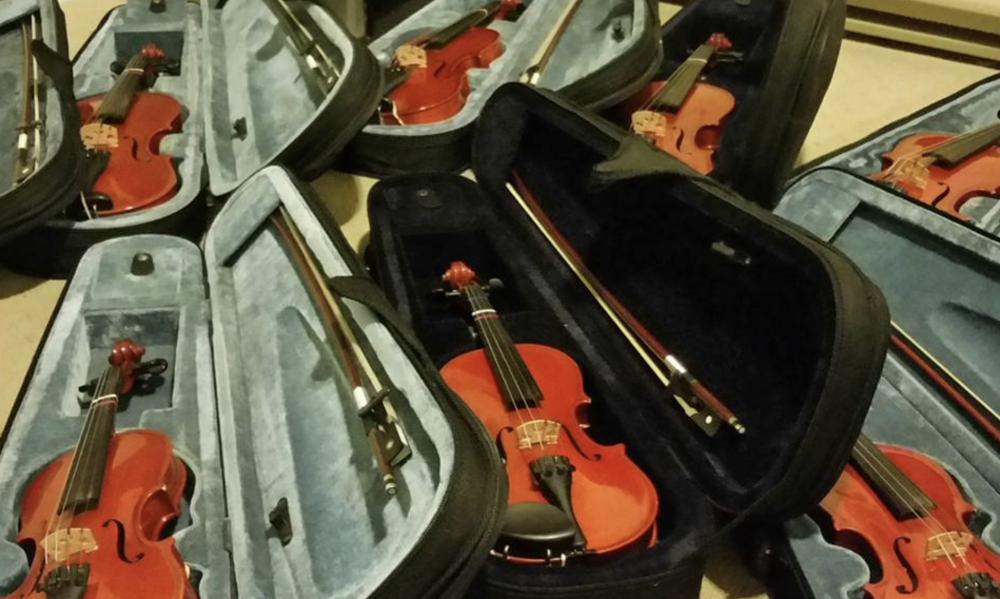The second week of the Chesapeake Chamber Music Festival fortnight of concerts opened with “Love Story”—not to be confused with the cloyingly saccharine 1970 novel and movie of the same title best remembered, or forgotten, by the line: “Love is never having to say you’re sorry.” (Are you kidding? I’ve been in love with the same woman for decades and must have apologized a thousand times. But that’s another story.)
This “Love Story” celebrates the marriage and partnership of Clara and Robert Schumann, 19th-century musical geniuses whose lives are the stuff of tragic opera. Clara Wieck’s father so opposed her marriage to Robert Schumann that his daughter’s husband-to-be dragged him into court. Friedrich Wieck held such pride in Clara’s composing skills as well as her brilliance as a pianist that he feared her being subjugated by Robert, who would prove to be a loving but not entirely supportive spouse. The couple and their eight children—four of whom died young—lived on the earnings of Clara as a concert pianist. She had little time to write her own music and in any case gender bias restricted women composers from publishing or having their works performed in public. Meanwhile, her husband, who composed what is considered the first great chamber work for piano and string quartet—anchoring Wednesday’s recital at Easton’s Academy Art Museum—suffered the final in a series of mental breakdowns, condemning him to an asylum and early death. It was in these last tortured years of his life that Clara, who survived Robert by four decades, wrote the sole chamber piece of her career, opening Wednesday’s concert.
Perhaps it is their personal story that influences my perception of these two masterpieces. But I cannot help but to classify, hopefully without gender bias, one as tenderly feminine and the other as virulently masculine.
Clara’s Piano Trio in G minor, Opus 17, as performed on the 200th anniversary year of her birth by pianist Diane Walsh, violinist Carmit Zori and cellist Marty Rosen, evokes a wistful remembrance of a treasured moment. Zori’s violin fulfills its melodic role throughout. In the lighter second movement scherzo, it leads us in a restless search perhaps for a place to lay one’s head, while in the third movement the weeping violin is echoed in tragic undertones by Rosen’s cello. The more hopeful finale is piano-driven as Walsh leads with dramatic flourishes to the string evocations of romantic sentiment.
By comparison, Robert’s quintet, taking advantage of the extra violin, here played with her usual flair by Catherine Cho, makes a defiantly robust statement as if announcing who’s boss. A soulful viola-and-cello duet, played by Maiya Papach and Rosen, leads to a big first movement finish with twin teardrop notes on violin. A wandering second movement—lost with no direction home—balances dual violin tenor against viola/cello baritone. A scherzo with agitative staccato riffs gives equal voice to all instruments racing pell-mell toward a pause before a final tumult that dives into a soft landing as if executed by an ace pilot—in this case a quintet of expert artists.
Week 2 of the chamber fest followed on the heels of Saturday’s gala at Easton’s Temple B’nai Israel, featuring clarinetist J. Lawrie Bloom performing in his finale as co-artistic director of the festival with cellist Rosen, Bloom’s co-founder/director, and violinist Cho, his successor in 2020. Bloom earlier distinguished himself, as ever, in the “Romantic Interlude” concert at the Academy Art Museum re-introducing Louise Farrenc’s trio for clarinet, cello and piano—a piece written by the only 19th-century female professor of the Paris Conservatory re-published at the dawn of this millennium. Bloom’s bright clarinet soared in contrast to Rosen’s emotional cello underpinning as pianist Ieva Jokubaviciute bridged the two with tonal stepping stones across their melodic river. That concert concluded with a Brahms piano quartet expressing the anguish of his unrequited love for Clara, now a widow, unwilling to share her life with his. Such are the inspirations for great art.
On Thursday, the festival makes its debut in Cambridge, followed by two more concerts Friday in Easton and Saturday in Oxford, wrapping up its 34th season.
Steve Parks is a retired journalist, arts critic and editor now living in Easton.
“From Rags to Riches” (concert, reception), Schubert, Brahms, Mozart, Lilburn, Psathas, Bolcom, Gershwin; 5:30 p.m. Thursday, June 13, Christ Church, Cambridge
“Romancing and Dancing,” Clara Schumann, Ravel, Bartok, Dvorak; 7:30 p.m. Friday, June 14, Trinity Cathedral, Easton
“The Art of the String Quartet” (concert, reception), Mendelssohn, Robert Schumann; 4 p.m. Saturday, June 15, Oxford Community Center
Tickets/info: 410-819-0380, chesapeakemusic.org





Write a Letter to the Editor on this Article
We encourage readers to offer their point of view on this article by submitting the following form. Editing is sometimes necessary and is done at the discretion of the editorial staff.